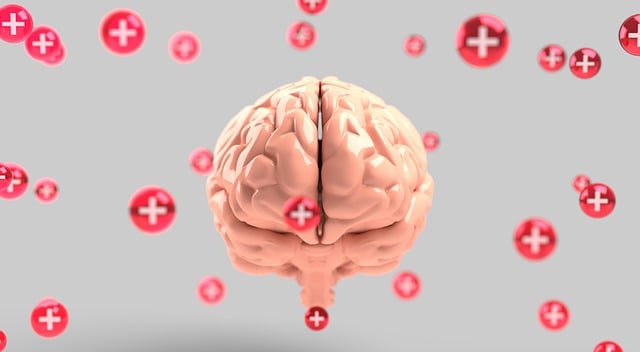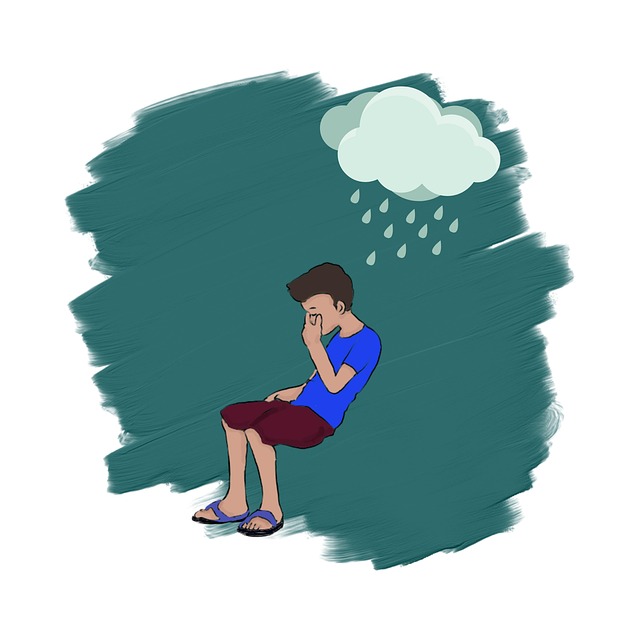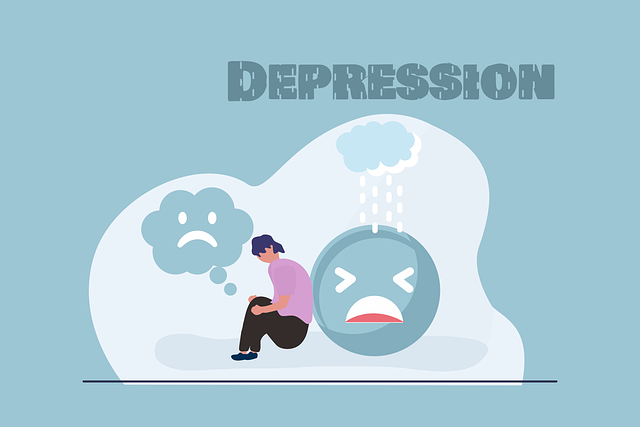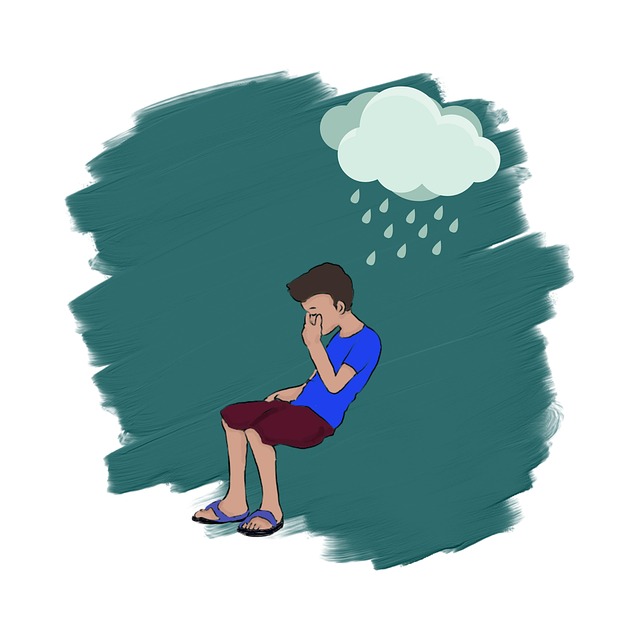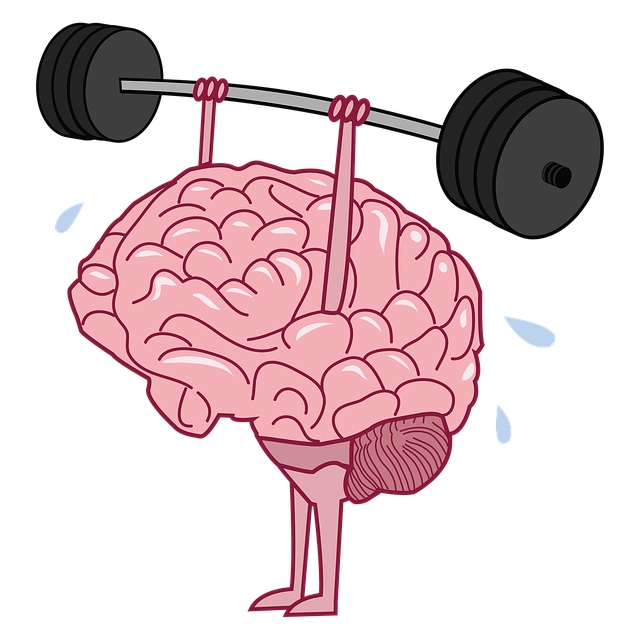Centennial Play Therapy is an innovative, evidence-based approach for children and adolescents, using play to access hidden emotions and behaviors, resolve conflicts, and develop coping strategies. Combining this method with mindfulness meditation, self-care practices, and stress reduction techniques enables clients to navigate their mental health journey with greater clarity and control. This holistic approach enhances the effectiveness of therapy, integrates conflict resolution and compassion cultivation, and promotes optimal outcomes for all individuals, fostering long-term mental wellness through creative expression and emotional needs addressing.
“Navigating mental illness diagnosis and treatment can be a complex journey. This comprehensive guide aims to demystify the process, offering insights into understanding mental health conditions and the various treatment avenues available. We explore ‘Understanding Mental Illness Diagnoses’ and delve into the therapeutic benefits of Centennial Play Therapy, a unique approach that facilitates healing.
Furthermore, we provide a detailed overview of treatment options, emphasizing self-care and advocacy as key components of recovery. By armed with knowledge, individuals can confidently embrace their path to well-being.”
- Understanding Mental Illness Diagnoses: Unraveling the Process
- The Role of Centennial Play Therapy in Treatment
- Navigating Treatment Options: A Comprehensive Guide
- Supporting Recovery: Tips for Effective Self-Care and Advocacy
Understanding Mental Illness Diagnoses: Unraveling the Process

Mental illness diagnoses are a complex process that requires careful evaluation and expertise. It’s a journey where individuals often navigate uncharted territories, trying to make sense of their experiences. Centennial Play Therapy, a innovative approach, serves as a beacon of hope for many. This therapeutic method encourages clients to express themselves through play, allowing them to explore emotions, memories, and behaviors in a safe environment. By engaging in creative activities, individuals can uncover underlying issues that might otherwise remain hidden.
Understanding the process involves recognizing that mental health professionals employ various assessment tools and techniques. These may include in-depth conversations, standardized questionnaires, and observations. Through this exploration, therapists aim to unravel the intricate web of symptoms, triggers, and personal histories. Incorporating evidence-based practices like Mindfulness Meditation and Self-Care Practices alongside therapy can significantly enhance the healing process. By integrating Stress Reduction Methods into their routines, individuals can gain better control over their mental well-being.
The Role of Centennial Play Therapy in Treatment

Centennial Play Therapy offers a unique and innovative approach to mental health treatment, particularly for children and adolescents. This form of therapy leverages play as a powerful tool to help individuals express themselves, process emotions, and work through challenges in a safe and creative environment. Through Centennial Play Therapy, trained therapists create a nurturing space where young clients can explore their feelings, resolve conflicts, and develop essential coping strategies.
The benefits extend beyond the therapeutic session itself. By integrating Conflict Resolution Techniques and Compassion Cultivation Practices within play-based activities, healthcare providers enhance cultural competency training, fostering an understanding of diverse backgrounds and perspectives. This inclusive approach ensures that treatment is tailored to meet each individual’s unique needs, promoting better outcomes and a more supportive journey towards recovery.
Navigating Treatment Options: A Comprehensive Guide

Navigating treatment options for mental health issues can be a daunting task, but with the right guidance, individuals can find their path to healing. A comprehensive approach is essential, especially when considering various therapeutic modalities like Centennial Play Therapy, which focuses on fostering emotional growth through creative play. This therapy is particularly beneficial for children and adolescents dealing with trauma, anxiety, or social challenges. By offering a safe space to explore and express themselves, it facilitates the development of coping mechanisms and enhances overall well-being.
In addition to specialized therapies, depression prevention strategies, community outreach program implementations, and conflict resolution techniques can play pivotal roles in comprehensive treatment plans. These tools empower individuals to manage their mental health proactively, build supportive networks, and resolve conflicts that may contribute to or exacerbate underlying issues. A holistic view of treatment, integrating various therapeutic methods and support systems, ensures a more effective and lasting positive impact.
Supporting Recovery: Tips for Effective Self-Care and Advocacy

Supporting recovery through self-care is a vital component of navigating mental illness. Engaging in consistent self-care practices allows individuals to advocate for their own well-being, fostering a sense of agency and empowerment. This may include activities such as regular exercise, which not only improves physical health but also acts as an effective anxiety relief strategy, often recommended by crisis intervention guidance resources. Additionally, mindfulness techniques, like meditation or journaling, can be powerful tools in managing symptoms and enhancing mental wellness.
Centennial Play Therapy offers a unique approach to supporting individuals on their journey towards recovery. Through play therapy sessions, clients can express themselves creatively while learning coping mechanisms and building resilience. This holistic method acknowledges that self-care is not just about personal maintenance but also involves addressing underlying emotional needs, ultimately promoting long-term mental wellness.
Mental illness diagnosis and treatment can be a complex journey, but with the right tools and support, individuals can navigate this path successfully. By understanding the diagnostic process, exploring therapeutic approaches like Centennial Play Therapy, and arming themselves with knowledge about various treatment options, people can actively participate in their recovery. Self-care practices and advocacy are crucial aspects of this journey, ensuring individuals have the resources and resilience to thrive. With dedicated navigation assistance, the road to mental wellness becomes more accessible and transformative.






